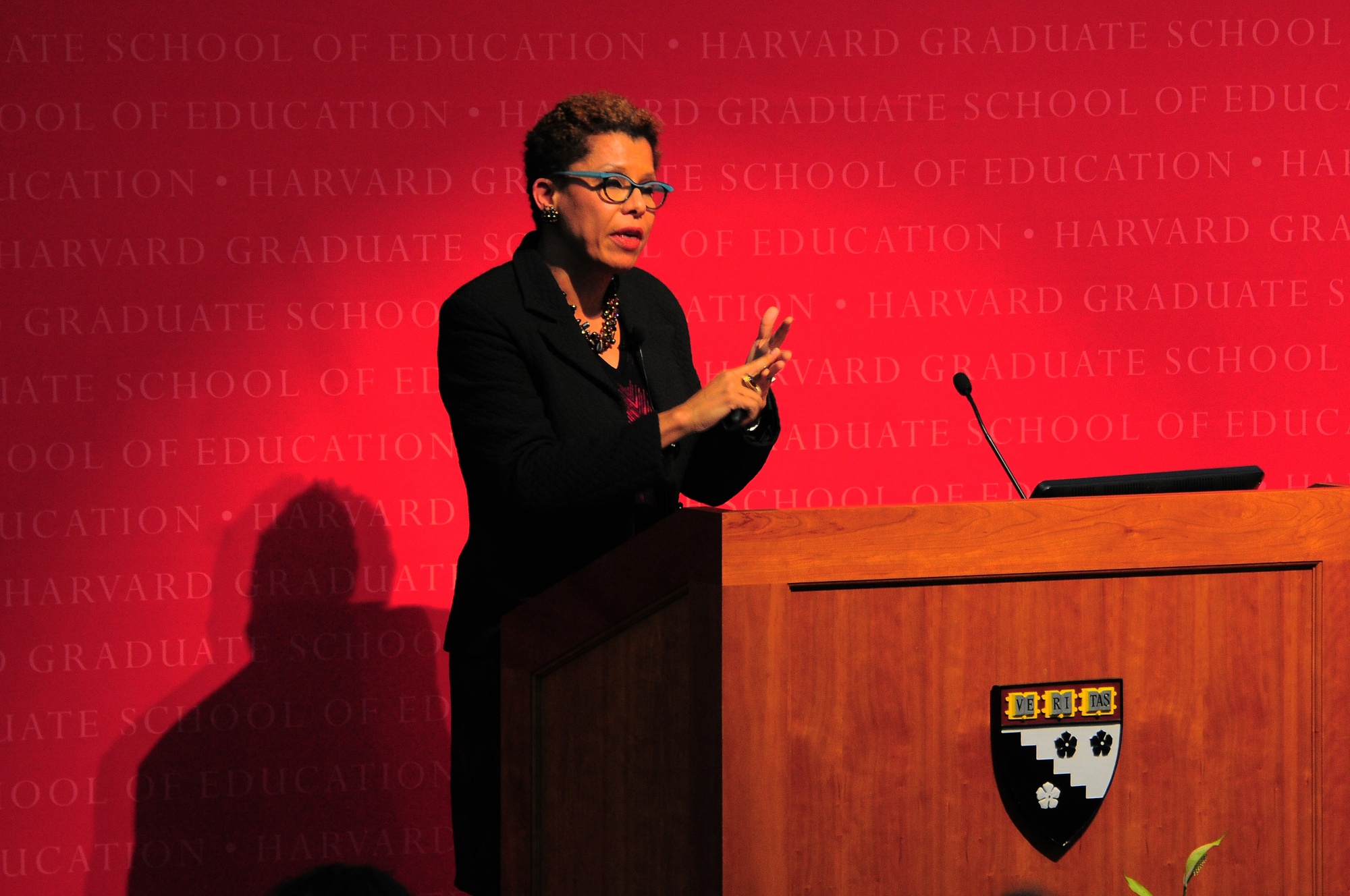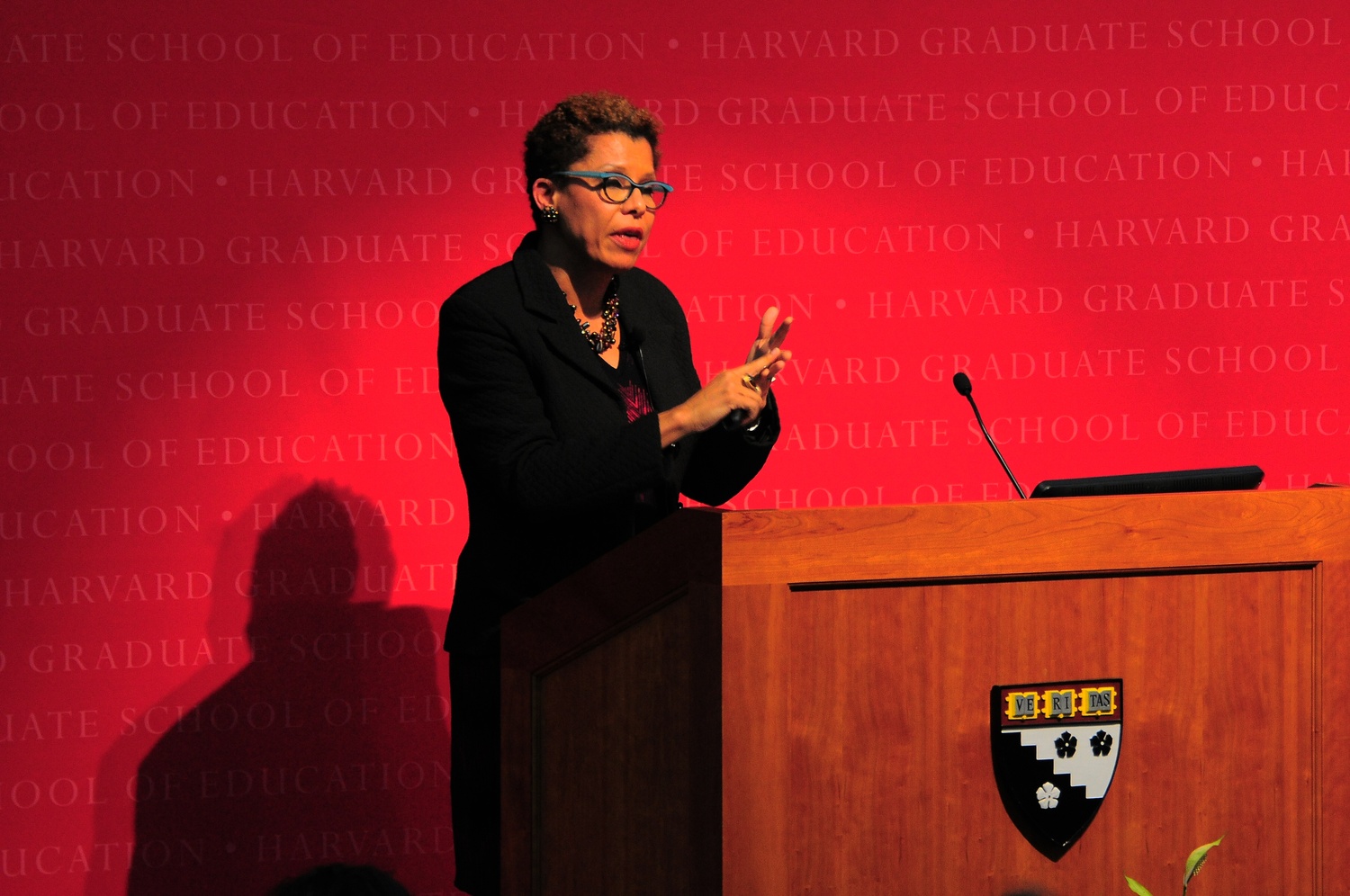
News
Harvard Alumni Email Forwarding Services to Remain Unchanged Despite Student Protest

News
Democracy Center to Close, Leaving Progressive Cambridge Groups Scrambling

News
Harvard Student Government Approves PSC Petition for Referendum on Israel Divestment

News
Cambridge City Manager Yi-An Huang ’05 Elected Co-Chair of Metropolitan Mayors Coalition

News
Cambridge Residents Slam Council Proposal to Delay Bike Lane Construction
Experts Debate Race-Based College Admissions

Two experts in educational inequality exchanged diverging opinions on race-based affirmative action in the college admissions process at a forum at the Graduate School of Education on Thursday.
The forum, titled “The End of Race-Based College Admissions,” featured Sheryll D. Cashin, an alumna of the Law School and a professor at Georgetown University Law Center, and Richard J. Rothstein ’63, a visiting scholar at the GSE and a research associate at Economic Policy Institute.

During the discussion, there was disagreement between the two experts on different aspects of the topic. Cashin argued that affirmative action in higher education should be primarily based on social class, whereas Rothstein advocated for a race-based policy that favors African Americans.
Cashin said that colleges’ admissions policies should take into account the socioeconomic background that the student comes from.
“We should de-emphasize standardized test scores… and compare the achievement of the students to the resources that they have available,” she said. “The valedictorian of Ferguson, Missouri deserves a leg-up. The person who has had to overcome these enduring structural disadvantages—I don’t care what color they are—needs and deserves a leg-up in admissions.”
She added that students who come from disadvantaged backgrounds are much more likely to give back to society by working in public service after they graduate.
Rothstein said he favors a raced-based admissions process partly because American society has a “moral and constitutional obligation” to remedy a history of discrimination against African Americans.
“I’m concerned with how we as a society remedy centuries of caste based public policy that has relegated African Americans disproportionately to the lowest social classes and the worst neighborhoods,” he said. “Policy makers don’t need less race consciousness; they need more.”
When Cashin pointed out that African Americans are not the only racial group that was discriminated against in American history, Rothstein said that Latinos are integrating into American society better than African Americans in some places. This is evidence that the African American case is a unique one, he said.
Audience members said they appreciated the points made by both experts.
“I think the two speakers articulated their positions very well. They clearly disagreed on a lot of things very strongly but the discussion was very rich,” said Alexander W. Dean, a student at the GSE.
Lindsay M. McKenzie, a student at the Law School, agreed.
“It was a very timely debate,” he said. “Affirmative action is in a difficult situation now; there are a lot of reforms. It’s very spirited. There’s a lot of disagreement, which I liked.”
—Staff Writer Zara Zhang can be reached at zara.zhang@thecrimson.com.
Want to keep up with breaking news? Subscribe to our email newsletter.
